Jack Kirby’s Heirs Suing Marvel
Jack Kirby's heir are trying to posthumously renegotiate half-century old deals with Marvel.
Brent Staples begins his NYT Sunday Review essay on “Marvel Superheroes and the Fathers of Invention” thusly:
The comic book industry began life in the early 20th century as the province of con men who stripped artists of their creations, then moved on to the next mark. The artists who were paid virtually nothing for work on characters that are now worth billions at the movies are nearly all dead. But their heirs are beginning to speak for them through a federal copyright law that practically invites descendants to sue for ownership interests in characters whose current value could never have been imagined at the moment of creation.
Holy misleading ledes, Batman!* It’s true that comic book writers and artists got lousy deals in the early decades of the industry compared with the new norms that began to emerge in the late 1980s. But that was true of motion picture and television stars once upon a time, to0. When treating creative talent as mere employees was customary, doing so didn’t make management “con men” or the employees “marks.”
As noted in this space previously (see, “Marvel Sues to Keep Spider-Man, X-Men Copyrights“) the heirs of some of these creators, the legendary Jack Kirby in particular, are suing to retroactively change those deals.
Courts have already granted a share of the copyright for Superman to the heirs of a co-creator, and sided with Captain America’s creator in another copyright fight. These cases are small fry compared with the battle now being waged between Marvel and the heirs of the legendary comic artist Jack Kirby, who breathed life into such pop culture icons as the X-Men, the Incredible Hulk, Iron Man, the Fantastic Four, Spider-Man, Thor and the Silver Surfer.
Of course these court battles are about money. They also force the modern entertainment industry to reckon with the often amoral practices of the old comics workshops. And they raise deeper questions about how to credit creative works produced at a time when even the most talented artists were treated as serfs.
Marvel pioneered a new method of comic book production. It broke with the industry’s tradition of requiring artists to draw almost by rote from a pre-existing script. Instead, it gave its best creative minds wide artistic latitude.
The Marvel editor Stan Lee sometimes offered general ideas for characters, allowing the artists to run with them. Mr. Kirby plotted stories, fleshing out characters that he had dreamed up or that he had fashioned from Mr. Lee’s sometimes vague enunciations. Mr. Lee shaped the stories and supplied his wisecrack-laden dialogue. And in the end, both men could honestly think of themselves as “creators.”
But Mr. Kirby, who was known as the King of Comics, was the defining talent and the driving force at the Marvel shop. Mr. Lee’s biographers have noted that the company’s most important creations started out in Mr. Kirby’s hands before being passed on to others, who were then expected to emulate his artistic style.
None of this is in serious dispute. Stan Lee himself has long acknowledged that he and Kirby worked hand in globe on Marvel’s flagship creations. The fight isn’t over who should get the credit–Kirby’s status on the Mount Rushmore of comicdom is secure–but over ownership.
In 2009, shortly after Disney agreed to buy Marvel for $4 billion, the Kirby heirs filed notices of copyright termination. They argue that most of Marvel’s film earnings involve Mr. Kirby’s creations — and that therefore they have a right to a share of the copyrights.
Marvel counters that Mr. Kirby’s work falls under the rubric of “work for hire” — meaning it was done under the direction, supervision and control of the company — which, if true, would invalidate the family’s claim. But that could be difficult to demonstrate at trial, given the poor record-keeping of the era and what is known about how Mr. Kirby worked.
Surely, though, given that five decades have passed, the onus is on the Kirby heirs to prove that he was an independent contractor who merely licensed the rights to his co-creations to Marvel? Otherwise, half a century of Marvel acting as if it were the rights holder without a peep from Kirby–who was alive most of that period, including some time when he was estranged from Marvel and working for arch-rival DC–would seem to give the presumption of ownership.
______
*Yes, I realize Batman is a DC character.
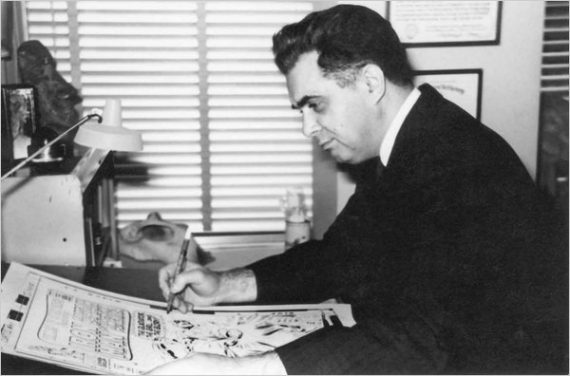

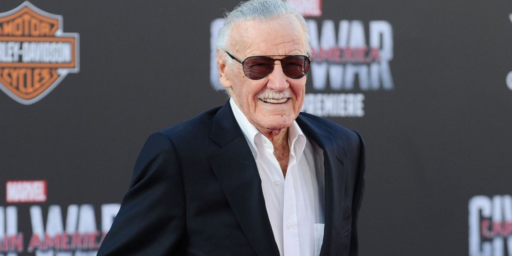
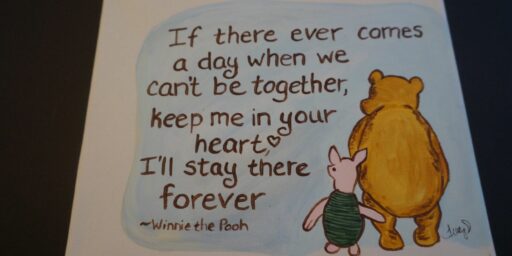
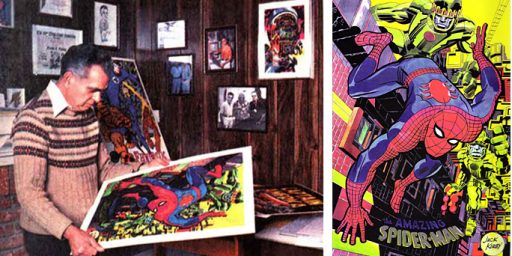
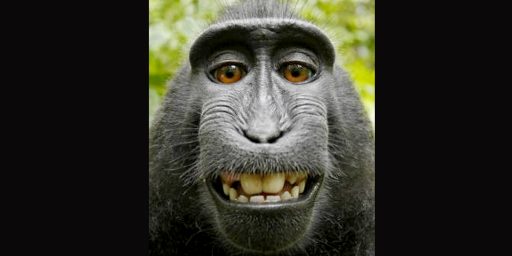
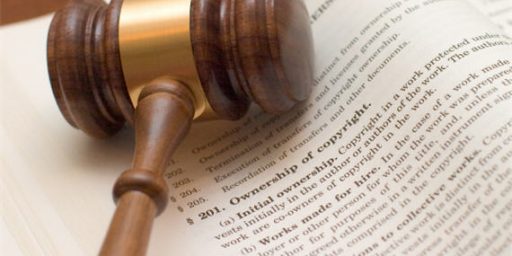
Actually the law is on the Kirby family’s side. Prior to 1978, copyrights only lasted for 50 years, so all of his work at Marvel should be entering into the public domain. The law retroactively extending copyright also specifically states that it’s not extending the term of any agreements reached under the previous law, so at the time the original copyright would have expired, the original creator can reclaim their rights.
In order to win this case, Marvel can’t just claim they had an agreement with Kirby, they have to argue that Kirby wasn’t the creator and was merely acting in a work for hire role. Which as you’ve already noted they can’t realistically claim.
From my understanding, a lot of this has to do with the entire structure of the industry in those early days. My understanding is that Kirby and the other Bullpen members were never traditional hires. Exclusivity only really emerges in the late 70’s and into the 80’s. Most of these guys were also moonlighting at Ad Agencies.
The irony is that the Comics business at that time was so low margin (no one ever dreamed that these characters would ever make it big) that this sort of quasi-independent contracting status was the only way to make it profitable.
In fact, according to legend, in the early sixties the future was looking so grim that at least Stan Lee, and possibly Kirby, were looking to get out of the biz. The Fantastic Four — and many of the trademark characters that followed — were all “hail mary” passes of the first order. With little to lose the pair (and other marvel creators at the time) just started to throw out crazy ideas for the heck of it and seeing what stuck.